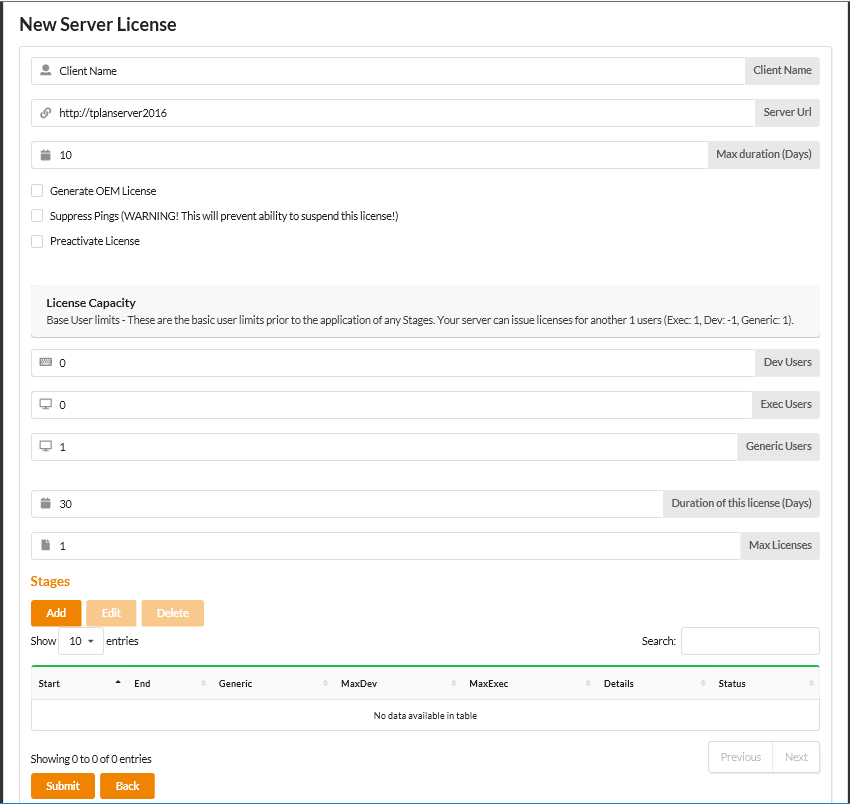Creating a New Server License
If your License Server is licensed as a "Master" or OEM server you will have the ability to create server licenses. This is the ability to create a License Server license which you can distribute to clients and/or partners who require to run their own License Server locally or internally. These licenses can then be sent out and applied into a new License Server installation with minimal configuration required.
The other benefit of creating 'child license servers' is that you can maintain that server remotely to a degree. For example you can push license updates automatically to increase/decrease license allowances as well as Suspending license servers.
In order to create a server license you must first select the "Issued Licenses" tab, from where you select the "New Server License" button.
This presents you with the New Server License page as follows:

The available fields are as follows:
Client Name - This is the name of the client that will be installing the License Server. This will also become their "Account Name" required for their future logon to their License Server.
Server URL - This is the URL of the 'parent' license server. This will allow the remote administration between the 'parent' and 'child' servers. It should be prepopulated with your current server url.
Max Duration - This value represents the maximum duration of session licenses that can be created within the child license server.
*Generate OEM License - Do you wish for the child license server to have OEM capability (i.e. the ability to create further child license servers)
*Suppress Pings - This will prevent the child license server ever communicating back to the parent server, therefore running as an 'offline' server.
Preactivate License - Offline license servers will need to be provided with a preactivated license based on their License Code.
Dev Users - The maximum number of Developer sessions that will be allocated within the License Server.
Exec Users - The maximum number of Robot Execution sessions that will be allocated within the License Server.
Generic Users - The maximum number of Robot Developer and/or Execution sessions that will be allocated within the License Server.
Duration of this license - How long until the License Server itself and the contained Robot license will expire.
Max Licenses - The maximum number of licenses that can be created within the child license server.
Stages - License allowances can be controlled through Stages. This allows to temporarily increase and decrease licenses based on time periods.
* These items should be used with caution!
